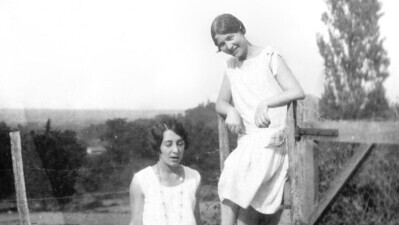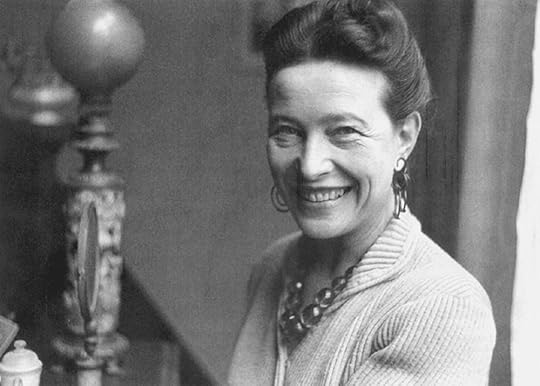What do you think?
Rate this book


176 pages, Hardcover
First published October 7, 2020

‘I was resolutely determined to continue to eat, read, speak, and dream in whatever way I pleased. “I don’t believe in God!” I thought. How was it possible to believe in God and deliberately choose to disobey Him? I sat stunned for a moment by this revelation: I did not believe.’
‘faith was not, as it was for so many others, a complaisant dependence on God, a means of being right, of self-justification or fleeing responsibilities but the painful questioning of a silent, obscure, hidden God.’


For a daughter, the predetermined path led straight to marriage or a convent; she could not decide her fate according to her own desires or feelings. It was up to the family to arrange marriages: organizing “interviews,” selecting candidates depending on ideological, religious, social, and financial interests. Marriages took place within the same social circle.
"من رسائل زازا إلى سيمون "

The book, in other words, is heavy-handed, schematic, and thin. It’s about the length and scope of de Beauvoir’s novellas but has been packaged as a complete novel, padded with a laudatory introduction, a defensive afterword asserting the project’s significance, and selected letters between de Beauvoir and Zaza. Still, it has obvious merits: most of all the prose and the psychological insights, which are wry and movingly direct in turn. “I admired her nonchalance without being able to imitate it,” Sylvie thinks of Andrée at one point, articulating the unscalable rift between desire and its fulfillment.
Madame Gallard had indulgently told Mama the story of Andrée’s martyrdom: the cracked skin, enormous blisters, paraffin-coated dressings, Andrée’s delirium, her courage, how one of her little friends had kicked her while they were playing a game and had reopened her wounds. She’d made such an effort not to scream that she’d fainted. When she came to my house to see my notebooks, I looked at her with respect; she took notes in beautiful handwriting, and I thought about her swollen thigh under her pleated skirt. Never had anything as interesting happened to me. I suddenly had the impression that nothing had ever happened to me at all.
All the children I knew bored me, but Andrée made me laugh when we walked together on the playground between classes. She was marvelous at imitating the brusque gestures of Mademoiselle Dubois, the unctuous voice of Mademoiselle Vendroux, the principal. She knew loads of secrets about the place from her older sister: these young women were affiliated with the Jesuits; they wore their hair parted on the side when they were still novices, in the middle once they’d taken their vows.
“She had appeared so glorious to me that I had assumed she had everything she wanted. I wanted to cry for her, and for myself.”
“Secretly I thought to myself that Andrée was one of those prodigies about whom, later on, books would be written.”
“No, our friendship was not as important to Andrée as it was to me, but I admired her too much to suffer from it.”
“What would I have daydreamed about? I loved Andrée above all else, and she was right next to me.”
“I thought to myself, distressed, that in books there are people who make declarations of love, or hate, who dare to say whatever comes into their mind, or heart—why is it so impossible to do the same thing in real life?”
“The errors I admitted were those of the soul above all: I had lacked fervour, too long forsaken the divine presence, prayed inattentively, regarded myself too complacently.”
“Andrée was unhappy and the idea of it was unbearable. But her unhappiness was so foreign to me; the kind of love where your kiss had no truth from me.”
“Never. The word had never fallen with such weight upon my heart. I repeated it within myself, under the never-ending sky, and I wanted to cry. ”
“No doubt she loved Andrée in her way, but what way was that? That was the question. We all loved her, only differently. ”
“Happiness suits her so well, I thought.”
““Don’t be sad,” she said. “In every family there’s a bit of rubbish. I was the rubbish.”
“For Andrée, there was a passageway between the heart and the body that remained a mystery to me. ”
